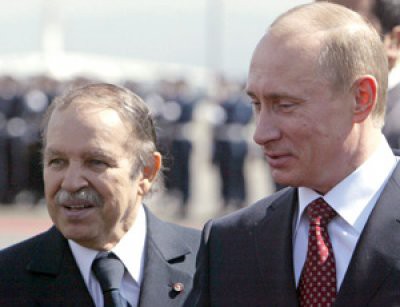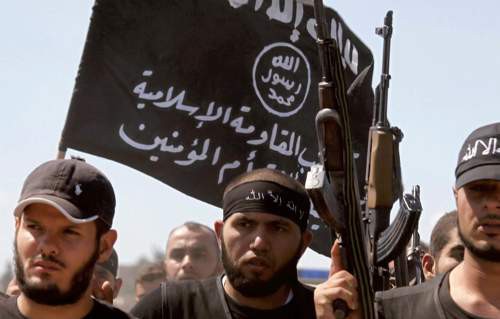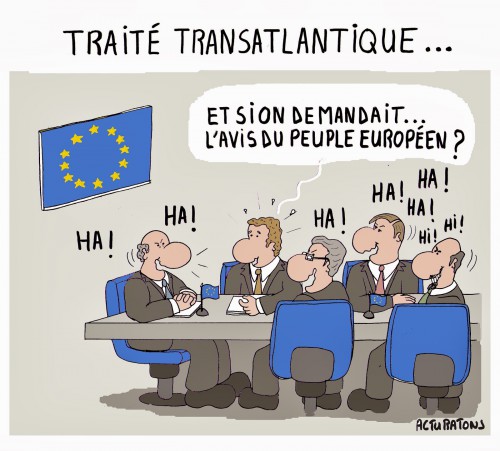
50 preguntas y respuestas sobre el Tratado de Libre Comercio entre EEUU y Europa
por Alberto Garzón Espinosa y Desiderio Cansino Pozo
Ex: http://paginatransversal.wordpress.com
El debate público sobre el Tratado de Libre Comercio (TLC) que se está negociando entre la Unión Europea y Estados Unidos es casi inexistente. Y eso a pesar, o quizás debido a, su importancia. Se trata de una serie de 50 preguntas y respuestas que de forma pedagógica intentan desvelar la importancia de un Tratado negociado de espaldas a la ciudadanía y que apoyan los principales grupos de poder económico y político. Esperamos que sea útil.
1. ¿Qué es un tratado de libre comercio?
Un tratado de libre comercio es un acuerdo que se firma entre dos o más países y que tiene como objetivo ampliar el mercado de bienes y servicios entre los países firmantes. Para ello se busca la reducción o eliminación de las barreras arancelarias y no arancelarias que existen en un determinado momento entre espacios económicos. Es decir, busca la reducción o eliminación de los impuestos a la importación y de la regulación relativa a la comercialización internacional de bienes y servicios. Cuando el acuerdo se firma entre dos países es conocido como acuerdo bilateral mientras que cuando se firma entre más de dos países se denomina acuerdo multilateral. En el mundo hay más de 3.000 acuerdos internacionales de inversión, la mayoría de ellos bilaterales.
2. ¿Cuándo se ha empezado a negociar el tratado entre EEUU y la UE?
El 28 de noviembre de 2011 durante encuentro entre líderes europeos y estadounidenses se creó el Grupo de Trabajo de Alto Nivel sobre Empleo y Crecimiento (HLWG, por sus siglas en inglés). Este grupo tenía como objetivo estudiar las políticas necesarias para incrementar el comercio y la inversión entre EEUU y la UE, haciendo recomendaciones a los diferentes gobiernos. En junio de 2013 la Unión Europea y los Estados Unidos anunciaron el inicio de negociaciones para llegar efectivamente a un Acuerdo Transatlántico de Comercio e Inversión (TTIP, por sus siglas en inglés), también conocido simplemente como Tratado de Libre Comercio (TLC). Las conversaciones comenzaron finalmente durante el mes de julio de 2013, y se prevé que se pueda aprobar finalmente durante 2014.
3. ¿Por qué no me he enterado antes?
Aunque la Comisión Europea ha insistido en que la negociación es transparente, lo cierto es que el proceso de negociación es prácticamente secreto. No se conocen detalles concretos de las negociaciones y sólo algunos documentos filtrados desde las propias instancias europeas han permitido ir desgranando los pilares del futuro acuerdo. El negociador principal de la parte europea reconoció en una carta pública que todos los documentos relacionados con las negociaciones estarían cerrados al público durante al menos treinta años. Concretamente aseguró que esta negociación sería una excepción a la Regla 1049/2001 que establece que todos los documentos de las instituciones europeas han de ser públicos[1]. Asimismo, el comisario De Gucht aseguró en el Parlamento Europeo que la negociación del TLC debía tener grado de confidencialidad y negó la función de negociación al Parlamento[2]. Lo que supone un ataque más a la ya escasa democracia en el seno de la Unión Europea.
4. ¿Entonces qué principio guía la redacción del documento?
Son los intereses económicos de las multinacionales los que están dictando las negociaciones. De hecho, la Comisión Europea se embarcó en más de 100 encuentros cerrados con lobistas y multinacionales para negociar los contenidos del tratado. La Comisión Europea tuvo que reconocer esos encuentros a posteriori, y más del 90% de los participantes resultaron ser grandes empresas[3].
5. ¿Quién apoya este TLC en España?
Dado que no hay debate público, es muy difícil conocer la opinión de la ciudadanía o de las organizaciones civiles. Sin embargo, la mayoría de los partidos del Congreso de los Diputados sí se han posicionado ya. El acuerdo firmado en junio de 2013 entre el Partido Popular y el Partido Socialista en el Congreso recogía una petición expresa al Gobierno para «apoyar un rápido comienzo de las negociaciones de un acuerdo de libre comercio entre los Estados Unidos de América y la Unión Europea ambicioso y naturalmente beneficioso»[4].
6. Al menos podremos votar los ciudadanos…
No, dado que la aprobación final del TLC corresponde al Parlamento Europeo. Sólo en caso de que las autoridades nacionales quisieran consultar a sus ciudadanos podríamos participar de forma directa en la decisión. Sin embargo, el 6 de mayo de 2014 el Congreso de los Diputados rechazó la convocatoria de un referéndum sobre el TLC, como proponía Izquierda Unida, con los votos en contra de PP, PSOE, CIU, PNV y UPyD.
7. ¿Son muy altas las barreras arancelarias entre EEUU y la UE?
No. La propia Comisión Europea ha reconocido que «las relaciones económicas entre los Estados Unidos y la Unión Europea pueden ser consideradas entre las más abiertas del mundo»[5]. Asimismo, la Organización Mundial del Comercio ha estimado que las tarifas promedio rondan el 3,5% en Estados Unidos y el 5,2% en la Unión Europea. Estamos hablando de niveles extraordinariamente reducidos.
8. ¿Entonces qué se busca con el TLC?
La Comisión Europea considera que «las medidas regulatorias constituyen el mayor obstáculo para incrementar el comercio y la inversión entre Estados Unidos y la Unión Europea»[6]. Así, el propósito no es la reducción de los ya bajos niveles arancelarios sino la modificación de la regulación existente en las relaciones comerciales entre ambos espacios económicos, favoreciendo únicamente a las grandes empresas transnacionales que son las únicas interesadas.
9. ¿De qué tipo de regulación estamos hablando?
Se trata de la regulación relacionada con el control sanitario de determinados productos, con los estándares medioambientales, con los convenios laborales, con la propiedad intelectual e incluso con la privatización de servicios públicos. Se argumenta que estas normas suponen costes adicionales para las empresas, todo lo cual sería una pérdida de potencial económico para las distintas economías.
10. ¿Y cómo afectaría un TLC al crecimiento económico y el empleo?
Según informes económicos favorables al acuerdo, el TLC crearía en EEUU y UE hasta dos millones de nuevos puestos de trabajo y estimularía el crecimiento económico incluso un 1% anual. Sin embargo, el propio informe de la Comisión Europea apunta a un posible crecimiento económico del 0,1% anual en uno de las mejores escenarios posibles. Por otro lado, la Comisión Europea también señala entre los beneficios de este Tratado la bajada de precios.
11. Menos es nada. ¿Son creíbles esas predicciones?
En absoluto, dado que se han extraído de modelos econométricos que dependen de unas hipótesis poco realistas. Siempre es posible torturar los modelos estadísticos y los propios indicadores para que nos digan lo que queremos. Es mucho más riguroso basarse en la experiencia pasada de tratados similares que en esbozar milagros sobre el papel.
12. ¿Hay experiencias pasadas que sean equiparables?
Sí, por ejemplo el conocido como Acuerdo de Libre Comercio de Norte América (NAFTA, por sus siglas en inglés). Cuando se firmó por Canadá, Estados Unidos y México en 1993 se anunció que crearía un total de 20 millones de empleos. Pasado el tiempo la propia Cámara de Comercio de EEUU ha reconocido que tal promesa no se materializó[7]. De hecho, las estimaciones independientes más razonables apuntan a que finalmente hubo una pérdida neta de empleos cercana al millón de personas debido a las deslocalizaciones[8].
13. ¿Es posible que el TLC destruya puestos de trabajo?
Por supuesto, y de hecho incluso la Comisión Europea asume que va a ocurrir. Lo que sucede es que la Comisión considera que será un efecto parcial circunscrito a algunos sectores económicos y zonas geográficas y que será compensado por efectos positivos en otros sectores económicos y regiones. También algunos pensadores liberales sostienen que los efectos perjudiciales sobre el empleo serán compensados por el desplazamiento productivo hacia líneas de actividad más eficientes[9].
14. Entonces… ¿aumentar la oferta de bienes y servicios va a crear empleo en España?
No. Nuestro problema no es la oferta sino la demanda. Si nuestros ingresos y rentas disponibles son menores, lógicamente compramos menos. Es decir, cada vez somos más pobres y no se incrementan las ventas. Por lo tanto, lo que se va a producir es un trasvase de ventas desde las empresas locales hacia las grandes empresas que son las pueden mantener estructuras de costes y precios reducidos a lo largo del tiempo hasta que hayan logrado eliminar a la competencia local.
15. ¿Quiere decir eso que se destruirán empresas y sectores?
Efectivamente. Cuando se amplían los mercados la competencia se incrementa y las empresas nacionales se ven obligadas a competir con las extranjeras. Y en esa pugna acaban victoriosas las empresas más competitivas. Todas las que no puedan competir y ofrecer precios más bajos tendrán que desaparecer junto con todos sus puestos de trabajo. De hecho, la Comisión Europea ha reconocido que la ventaja competitiva de algunas industrias estadounidenses generarán un notable impacto negativo en sus homólogas en la Unión Europea, pero asume que los gobiernos tendrán fondos suficientes para mitigar los costes que ello genere[10].
16. ¿Cómo se verá afectada la agricultura europea?
El modelo agrario europeo es muy diferente al estadounidense, tanto en su organización como sobre todo en su tamaño. En EEUU hay 2 millones de granjas, mientras que en la Unión Europea hay 13 millones. En promedio una granja estadounidense es 13 veces más grande que una europea, lo que permite a las empresas estadounidenses competir en mejores condiciones. Por eso los agricultores europeos están tan preocupados: la amenaza de una concentración de poder y riqueza en el sector es muy alta.
17. ¿Mayor concentración?
Sí, el efecto final de un proceso como el descrito es siempre un aumento de la concentración y centralización de las empresas. Dicho de otra forma: el pez grande se come al pez chico. El TLC implicará un duro golpe a la mayoría social del tejido empresarial europeo, que está constituido en su 99% por pequeñas y medianas empresas. Hasta ahora, los desarrollos normativos en los distintos países de la Unión Europea buscaban equilibrar las condiciones en el juego de la economía de mercado defendiendo a las pequeñas empresas para que tuvieran la oportunidad de competir en igualdad de condiciones con las grandes. Con el TLC este equilibrio se rompe para inclinarse la balanza a favor de las grandes corporaciones.
18. ¿Y ello conducirá a una UE más homogénea?
No, lo que es más probable es que se produzca una ampliación de la brecha centro-periferia que ya existe en la Unión Europea. La estructura productiva de los países de la periferia (Portugal, Grecia, España…) está mucho menos desarrollada y es mucho menos competitiva, de modo que una mayor competencia proveniente de las empresas estadounidenses será un golpe mortal a las frágiles industrias de la periferia europea. Además, no sólo se conducirá hacia una UE menos homogénea, sino que la brecha entre economías ricas y pobres, entre el norte y el sur, a escala mundial no haría más que aumentar. Dicho de otro modo, el norte se alía con el norte.
19. ¿Supone eso el fin de las posibilidades de reindustrialización?
Sí, porque se establece una camisa de fuerza que limita enormemente la capacidad de desarrollar una industria propia y competitiva para los gobiernos de las economías menos desarrolladas. Al fin y al cabo, los países que primero se industrializaron lo hicieron a través de medidas totalmente contrarias a las apuntadas por los tratados de libre comercio.
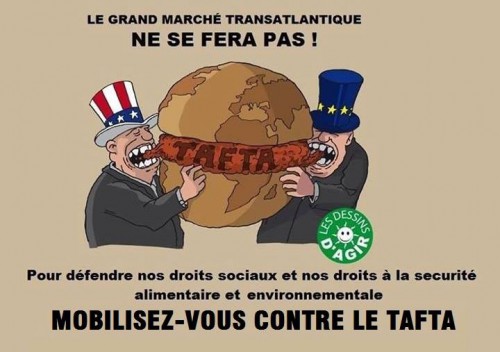
20. ¿Es eso cierto? ¿Es posible el desarrollo sin libre comercio?
Por supuesto. Como afirma el trabajo del reputado economista Ha-Joon Chang, «los consejos dados a los países en desarrollo durante las dos últimas décadas no sólo han sido básicamente erróneos sino que también ignoran la experiencia histórica de los propios países industrializados cuando se esforzaban por alcanzar el desarrollo»[11]. Concretamente, los países que primero se desarrollaron lo lograron a través de políticas de protección a la industria naciente y subsidios a la exportación, hoy prácticas consideradas muy negativas por los organismos internacionales.
21. ¿Significa eso estar en contra del comercio?
En absoluto. El comercio es muy positivo para las relaciones económicas y sociales, pero debe enmarcarse en un conjunto de reglas que impidan la concentración de poder y riqueza o la vulneración de los derechos humanos. El propio Adam Smith, a menudo símbolo del capitalismo industrial, fue partidario de establecer topes al libre comercio al percibir que un mercado desenfrenado y carente de la acción del Estado podía atacar la esencia humana.
22. ¿Entonces por qué se nos recomienda medidas erróneas?
El economista alemán Friedrich List lo resumió con una metáfora. Según él, «un ardid muy común e inteligente que practica quien ha alcanzado la cumbre de la grandeza es retirar la escalera por la que ha trepado para impedir a otros trepar tras él»[12]. Ello quiere decir que los países más desarrollados, que tienen industrias de alto valor añadido muy competitivas recomiendan al resto la apertura de fronteras comerciales porque saben que la victoria de sus empresas está asegurada. El propio List ya apoyó la idea según la cual «en presencia de países más desarrollados, los países [económicamente] atrasados no pueden desarrollar nuevas industrias sin contar con la intervención estatal, especialmente con protección arancelaria». Dicho de otra forma, en ese terreno de juego será imposible para España encontrar otro modelo productivo sostenible y equilibrado.
23. ¿Y qué pasará durante la lucha competitiva entre las empresas?
Cuando varios países abren sus fronteras para crear un mercado común de bienes y servicios se da un fenómeno de competencia hacia la baja o carrera hacia el fondo en el que se desploman los estándares laborales, los medioambientales e incluso los democráticos. Eso es lo que supondrá la aprobación del TLC. Aunque la retórica oficial de la Comisión Europea habla de «armonización de la regulación», se trata en realidad de un proceso en el que la igualación viene dada a la baja. Así, se habla de un proceso de mínimo denominador común en el que el resultado de la armonización será la igualación al nivel de la regulación más laxa.
24. Entonces, ¿pueden verse afectados los derechos laborales?
Sí. EEUU se ha negado a ratificar convenios de la Organización Internacional del Trabajo (OIT), incluyendo aquellos que se refieren a la libertad de asociación y a las prácticas sindicales. Su legislación -irónicamente llamada derecho al trabajo- es en realidad una legislación contra la negociación colectiva y el sindicalismo, y ha modelado en EEUU un sistema de competencia a la baja en materia laboral entre los Estados. Todos pugnan por atraer inversiones internacionales y nacionales por la vía de reducir aún más las condiciones laborales. Una igualación de la regulación hacia el sistema estadounidense es compatible con la cruzada que la Comisión Europea ha iniciado contra los salarios y el peso salarial en la renta. El TLC podría servir de catalizador del acercamiento de las normas laborales europeas a los estándares estadounidenses. Una generalización de la carrera hacia el fondo.
25. ¿Y a qué tipo de trabajo conducen estas normas?
En un escenario de incremento de la competencia, y en el que opera una tendencia de carrera hacia el fondo, el trabajo se va precarizando cada vez más y se disipan las posibilidades de un trabajo indefinido o estable. Las empresas siempre estarán dispuestas a deslocalizarse hacia las regiones donde se den menos salarios y costes laborales –entre los cuales cabe incluir los derechos laborales-, de tal forma que la amenaza es permanente. Esa amenaza, junto con la del desempleo, presiona a la baja todos los estándares. Incluido el del salario, cuestión que ya teorizaron los economistas clásicos (Marx, Ricardo, Smith) al hablar de una tendencia hacia el salario de subsistencia, esto es, hacia un nivel verdaderamente ínfimo.
26. ¿Significa eso que habrá nuevas reformas laborales?
Efectivamente. Una vez aprobado el TLC todos los Gobiernos tendrán que adaptar sus normativas nacionales a los nuevos acuerdos internacionales, lo cual implicará una nueva ola de reformas laborales, financieras, fiscales, etc. que sirva a esa armonización regulatoria propuesta en el tratado.
27. ¿Van a pagar las empresas menos impuestos?
Las grandes empresas ya tienen mecanismos para eludir el mayor pago de impuestos posibles. Los aranceles se repercuten al consumidor final de los bienes o servicios. La eliminación de los mismos suponen una merma en los ingresos públicos de los Estados, que podrían destinarse para compensar el impacto ecológico de la actividad económica o los costes sociales de las deslocalizaciones empresariales.
28. ¿El tratado también regulará el sector sanitario?
Toda la regulación está sujeta a ser modificada por el tratado, pero los negociadores de Estados Unidos han señalado particularmente a la regulación sobre sanidad y productos fitosanitarios como principales objetivos a armonizar[13]. Y es que la regulación de la Unión Europea en esta materia está mucho más desarrollada y es más rígida que la de Estados Unidos, razón por la cual una armonización a la baja será especialmente lesiva para los ciudadanos europeos.
29. ¿Eso quiere decir que estará en riesgo mi salud?
Muy probablemente. La Unión Europea utiliza actualmente un principio de precaución que impide que determinados productos puedan comercializarse a pesar de que no haya suficiente investigación científica que revele su peligrosidad. El sistema funciona porque son las empresas las que tienen que demostrar que sus productos no representan un problema para la salud del consumidor. Y ese proceso es largo, lo que los empresarios estadounidenses consideran que es un coste que hay que evitar.
30. ¿Y si finalmente se produce esa armonización?
Pues entre otras cosas los supermercados europeos se inundarán de productos que son habituales en Estados Unidos y que sin embargo a día de hoy están prohibidos en la Unión Europea por motivos sanitarios o ecológicos. Por ejemplo, el 70% de toda la comida vendida en Estados Unidos contiene ingredientes modificados genéticamente, algo impensable actualmente en la Unión Europea.
31. ¿Y por qué a día de hoy están prohibidos tantos productos?
En las décadas de los ochenta y noventa la Unión Europea introdujo restricciones a la importación de muchos productos estadounidenses por motivos de salud. Por ejemplo, las granjas estadounidenses suelen incrementar su productividad a través de la implantación a los animales de hormonas que les hacen engordar y crecer más rápido. Dichas hormonas, aplicadas sobre las reses o los pollos, están bajo sospecha tras vincularse con la proliferación del cáncer en humanos. Por eso la Unión Europea ha bloqueado sistemáticamente tantas importaciones, a pesar de las duras críticas de la industria estadounidense.
32. ¿También el medio ambiente se verá afectado?
Sí, y no sólo porque la regulación medioambiental será modificada sino también porque el incremento del volumen de intercambio de bienes y servicios afectará al medio ambiente. La propia Comisión Europea prevé un incremento de hasta 11 millones de toneladas métricas de dióxido de carbono emitidas a la atmósfera, lo que obviamente contraviene todos los protocolos internacionales de medio ambiente. Si finalmente se incrementa el comercio, se incrementarán también los recursos materiales, hídricos y energéticos necesarios para su producción, así como residuos, emisiones y desechos. Eso sí, en un alarde de hipocresía y economicismo, la Comisión Europea espera que «las ganancias asociadas con el incremento del comercio sean en principio suficientemente grandes como para pagar los costes necesarios para la disminución de la polución»[14]. Pero cabe advertir que la lógica monetarista y de mercado son ineficaces para dar solución a los problemas ecosistémicos, ya que éstos se rigen bajo otros principios.
33. Y la armonización de la regulación medioambiental, ¿cómo afectará?
De la misma forma que ocurría en el aspecto sanitario, con una armonización a la baja y la ruptura del principio regulatorio de precaución que actualmente usa la Unión Europea. Por ejemplo, hoy en día la Unión Europea bloquea más de 1.200 sustancias que se utilizarían en cosméticos, mientras que Estados Unidos sólo bloquea poco más de diez. Además, la armonización de la regulación sobre prácticas que dañan al medio ambiente podría abrir la puerta al fracking en Europa.

34. ¿Qué es el fracking?
Esta práctica permite extraer gas o petróleo del subsuelo pero dejándolo prácticamente inutilizable y plagado de sustancias tóxicas, alergénicas y cancerígenas. Además, es un proceso vinculado a la generación de terremotos de diferente magnitud. De ahí que esta práctica esté siendo frenada legislativamente en la Unión Europea, algo criticado duramente por las grandes empresas y por sus partidarios. Y es que las grandes empresas estadounidenses de exportación de gas y petróleo están buscando formas de superar la normativa europea respecto a la fracturación hidráulica (fracking) para poder incrementar sus beneficios. El primer ministro del Reino Unido, sin ir más lejos, denunció que la legislación europea permitía que «nuestros competidores vayan por delante de nosotros en la explotación de estos recursos»[15].
35. ¿Qué ocurrirá con la propiedad intelectual?
El Tratado incluirá disposiciones para promover los llamados derechos digitales, es decir, supuestamente para proteger a las empresas de la piratería digital. Pero en realidad esto puede suponer la restricción del acceso al conocimiento y la puesta de obstáculos a la innovación.
36. Eso me suena… ¿no se debatió ya en el Parlamento Europeo?
Efectivamente, el TLC busca recuperar el espíritu del Acuerdo Comercial Antifalsificación (ACTA, por sus siglas en inglés). Aquel acuerdo fue debatido y felizmente rechazado en el Parlamento Europeo en el año 2012, pero las grandes empresas y sus lobbies no se han rendido y buscan ahora incluir los aspectos fundamentales dentro del TLC.
37. ¿Y cómo afectará a los ciudadanos esa inclusión?
Hay que recordar que en Estados Unidos las grandes empresas pueden acceder sin límites a toda la información privada de sus clientes. Así, empresas como Facebook, Google o Microsoft tienen capacidad de utilizar esa información como deseen. Sin embargo, en la Unión Europea hay límites que protegen ese espacio personal. ACTA y ahora el TLC buscan romper esa regulación europea para armonizarla con la falta de límites de Estados Unidos. Y ello incluye la posibilidad de que los proveedores de internet puedan dar toda la información -incluido el historial de navegación- a los gobiernos y grandes empresas. En definitiva, con la excusa de querer proteger los derechos de propiedad intelectual de las grandes empresas se vulneran claramente los derechos individuales de los ciudadanos.
38. ¿Y eso afecta a las medicinas?
Exacto, pues el TLC busca reforzar los derechos de propiedad intelectual. Y ello incluye el fortalecimiento de las patentes de las empresas farmacéuticas. Esta política supone un mayor coste para los presupuestos públicos en sanidad, retraso en la incorporación de genéricos y mayor coste de los medicamentos para los hogares. Hay que recordar que cuando un medicamento con patente compite con un medicamento genérico se produce una disminución del precio de los medicamentos en cuestión, todo lo cual beneficia no sólo a los hogares sino también a la administración pública.
39. ¿Y a los servicios públicos?
El Tratado alcanza a todos los sectores de la economía, incluido el sector público. Muchos de los sectores públicos en Europa son fundamentalmente privados en Estados Unidos, y existe la amenaza real de que las grandes empresas estadounidenses vean Europa como un gran mercado para su expansión. Al coincidir esto con las políticas de austeridad promovidas por la Comisión Europea, hay un riesgo más que evidente de que el deterioro de la calidad de los servicios públicos sea la excusa de una futura ola de privatizaciones en numerosos sectores públicos. Ello apunta a una reducción del Estado y su capacidad de intervenir en la economía.
40. Eso interpela a la democracia…
Sí. La democracia en su definición procedimental implica una serie de reglas que permiten a los ciudadanos elegir a los representantes que tomarán las decisiones políticas. Pero entre los requisitos previos se encuentra asimismo la igualdad ante la ley de todos los ciudadanos, que es en quienes reside la soberanía nacional. Sin embargo, este tratado de libre comercio atenta directamente contra este requisito al conceder una mayor protección legal a las grandes empresas que a los propios ciudadanos o a los Estados.
41. ¿Quiere decir que las grandes empresas se sitúan por encima de los Estados?
Desgraciadamente así es, dado que el TLC incluirá una cláusula de protección de los inversores extranjeros (conocida como Investor-State dispute settlement, ISDS) que permitirá a las multinacionales demandar a los Estados cuyos gobiernos aprueben leyes que afecten a sus beneficios económicos presentes o futuros.
42. ¿Entonces el TLC estará por encima de la Constitución de cada país?
Sí, será como una supraconstitución. Y los tribunales internacionales de arbitraje, que no están constituidos por jueces independientes, tendrán un nivel judicial más alto que los tribunales nacionales. Así, un Estado puede ser condenado por un tribunal internacional por haber vulnerado los posibles beneficios de una multinacional. Pero además las grandes empresas pueden obviar los tribunales locales y directamente demandar a los Estados a través de tribunales internacionales, algo que ningún ciudadano puede hacer.
43. ¡Eso ni en la ciencia ficción!
Ojalá sólo fuera parte de una novela distópica. Pero la realidad es que estas cláusulas y los tribunales internacionales de arbitraje ya existen en el mundo desde hace mucho tiempo, pues han llegado de la mano de muchos otros tratados de libre comercio. Lo que sucede es que esta vez llegan a la Unión Europea de una forma mucho más clara.
44. ¿Y ya hay empresas que hayan demandado a los Estados?
Sí, por ejemplo la multinacional estadounidense Phillip-Morris ha demandado a Uruguay por 2.000 millones de dólares por haber puesto alertas sanitarias en las cajetillas de tabaco. Otra multinacional como Vattenfall ha demandado a Alemania por 3.700 millones de dólares por haber apagado sus centrales nucleares. Otra como Lone Pina ha demandado a Canadá por 250 millones de dólares canadienses por la moratoria de fracking que aprobó el Gobierno de Quebec.
45. ¿Se han dado sentencias condenatorias contra los Estados?
Hay muchos ejemplos. Ecuador fue sentenciado a pagar 2.300 millones de dólares a la petrolera Occidental Petroleum por abandonar la construcción de un pozo de petróleo en el Amazonas. E incluso Libia tuvo que pagar 900 millones de dólares de ”beneficios perdidos” por un proyecto turístico en el que sólo se habían invertido 5 millones de dólares.
46. ¿Cuál es la base de esas denuncias que ganaron las multinacionales?
Fundamentalmente argumentan que las decisiones de los gobiernos les han quitado la expectativa de beneficios futuros. Es decir, se trata de un concepto que se extiende hasta las supuestas ganancias perdidas a causa de determinadas políticas.
47. Eso quiere decir que los gobiernos están en indefensión…
Claro, porque el comportamiento de los Gobiernos cambia en la medida que existe una amenaza permanente de demandas multimillonarias por parte de las multinacionales. Por ejemplo, el ministro de Salud de Nueva Zelanda anunció el retraso de la aprobación de un pack sanitario hasta que se conociese la sentencia de Phillip Morris contra Australia.
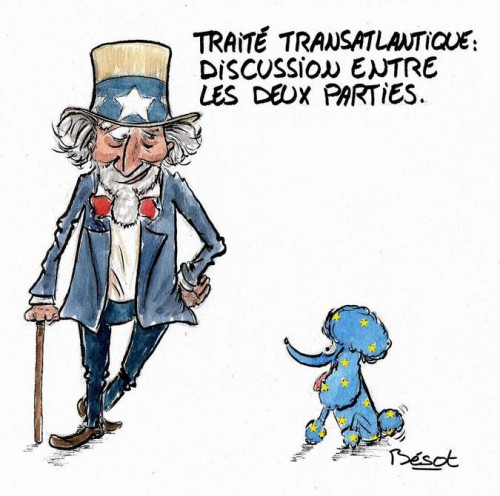
48. Si un gobierno cambia y quiere aplicar otra política, ¿qué ocurre?
Pues que es carne de cañón para todas las multinacionales que crean que ese cambio afecta a sus beneficios presentes y futuros. El caso paradigmático es Argentina, que tras la crisis de 2001 cambió radicalemente de política económica para intentar proteger a sus ciudadanos y desde entonces ha recibido más de 40 denuncias por parte de multinacionales…
49. Bueno, los Estados siempre pueden ganar en un juicio
Difícilmente en muchos casos. Hay que pensar que las multinacionales cuentan además con gabinetes de abogados especializados en la materia que generalmente están mucho más preparados que los abogados de los propios Estados. Pocos Estados se pueden permitir pagar la alta remuneración que reciben los abogados de las grandes multinacionales, y mucho menos mantener un equipo entero especializado en el tema.
50. ¿Podríamos decir que es un negocio económico en crecimiento?
Sí, a finales de 2013 había un mínimo de 268 demandas pendientes contra 98 países (UNCTAD). En los noventa sólo había una docena. Se trata de un nuevo negocio en sí mismo, lo que ha hecho que muchas empresas de abogados se hayan especializado y estén dispuestas a litigar por cualquier evento que crean puede servir para sacarle dinero a los Estados, desviándose como consecuencia grandes cantidades de recursos y fondos públicos hacia las grandes empresas, en lugar de dedicarse a los servicios públicos fundamentales que garanticen la vida digna de las personas.
[1] Carta de I. García Bercero a L. Daniel Mullany con fecha 5 de julio de 2013 y titulada “arrangements on TTIP negotiating documents”. http://trade.ec.europa.eu/doclib/docs/2013/july/tradoc_151621.pdf
[2] Intervención durante el debate en el Parlamento Europeo de 22 de mayo de 2013: “EU trade and investment agreement negotiations with the US”.
[3] http://corporateeurope.org/trade/2013/09/european-commission-preparing-eu-us-trade-talks-119-meetings-industry-lobbyists
[4] http://www.pp.es/sites/default/files/documentos/8030-20130613142939.pdf
[5] Comisión Europea (2013): “Impact Assesment Report on the future of EU-US trade relations”.
[6] Comisión Europea (2013): “Impact Assesment Report on the future of EU-US trade relations”.
[7] U.S. Chamber of Commerce (2012): “NAFTA Triumphant. Assesing two decades of gains in Trade, Growth and Jobs”. Disponible en https://www.uschamber.com/sites/default/files/legacy/reports/1112_INTL_NAFTA_20Years.pdf
[8] Economic Policy Institute (2003): “NAFTA-related job losses have piled up since 1993”. Disponible en http://www.epi.org/publication/webfeatures_snapshots_archive_12102003/
[9] Schwartz, P. (2013): “El deseado acuerdo transatlántico sobre comercio e inversión: un buen proyecto difícil de llevar”, en Revista de Economía ICE, nº 875, noviembre-diciembre 2013.
[10] Comisión Europea (2013): “Impact Assesment Report on the future of EU-US trade relations”.
[11] Chang, H-J. (2002): Retirar la escalera. La estrategia del desarrollo en perspectiva histórica. Catarata, Madrid.
[12] Ibidem.
[13] Executive Office of the President. The United States trade representative (2013). Carta a John Boehner, portavoz.
[14] Comisión Europea (2013): “Impact Assesment Report on the future of EU-US trade relations”.
[15] ElMundo.es (16/04/2014): “Cameron acusa a la Unión Europea de frenar el fracking”. Disponible en http://www.elmundo.es/ciencia/2013/12/17/52b0419761fd3d1e328b4575.html
Fuente: ATTAC
Extraído de: Círculo Viriato





 del.icio.us
del.icio.us
 Digg
Digg


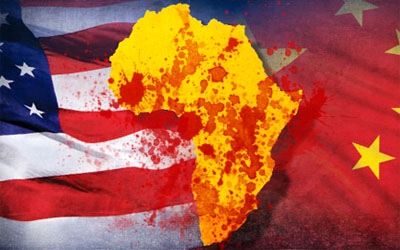



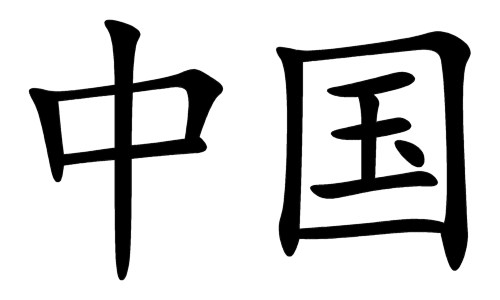

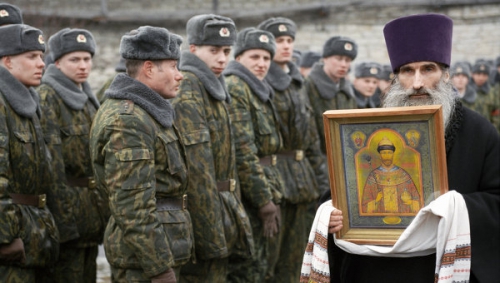


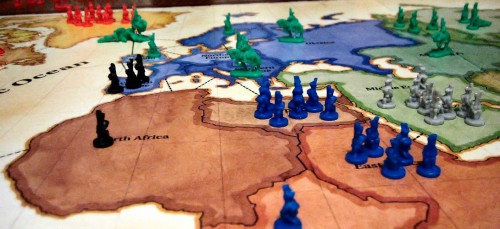
 Et jusqu’au 12 octobre 2014 se sont ouverts, les
Et jusqu’au 12 octobre 2014 se sont ouverts, les  « Un État fait la politique de sa géographie », pensait Napoléon. « C’est une évidence pour qui observe l’histoire des relations internationales », confirme Olivier Zajec dans Les secrets de la géopolitique (Tempora, 2008) – un petit ouvrage très éclairant réédité l’année dernière chez Artège. Saint-Cyrien et diplômé de Sciences Po Paris, agrégé et docteur en histoire, enseignant aujourd’hui à l’Université Lyon III, Zajec propose d’approcher la géopolitique par un retour aux sources, aux fondamentaux de la discipline : « La géopolitique étudie les inerties physiques et humaines qui affectent le comportement interne et externe des États. Elle éclaire ainsi les fondements politiques des actions pacifiques ou guerrières qui, par la conquête ou la défense de territoires, cherchent à assurer, par le biais de stratégies militaires, économiques et politiques, la pérennité d’une communauté dans l’Histoire ».
« Un État fait la politique de sa géographie », pensait Napoléon. « C’est une évidence pour qui observe l’histoire des relations internationales », confirme Olivier Zajec dans Les secrets de la géopolitique (Tempora, 2008) – un petit ouvrage très éclairant réédité l’année dernière chez Artège. Saint-Cyrien et diplômé de Sciences Po Paris, agrégé et docteur en histoire, enseignant aujourd’hui à l’Université Lyon III, Zajec propose d’approcher la géopolitique par un retour aux sources, aux fondamentaux de la discipline : « La géopolitique étudie les inerties physiques et humaines qui affectent le comportement interne et externe des États. Elle éclaire ainsi les fondements politiques des actions pacifiques ou guerrières qui, par la conquête ou la défense de territoires, cherchent à assurer, par le biais de stratégies militaires, économiques et politiques, la pérennité d’une communauté dans l’Histoire ». Ainsi de la Mer des Caraïbes, considérée par Washington comme un « lac américain », du Golfe persique, où s’exprime la vieille « rivalité géo-historique entre Perses et Arabes » sur fond de jeu pétrolier mondial, ou encore de la Mer de Chine méridionale, où « s’entrelacent d’innombrables îles et archipels, au croisement des routes d’approvisionnement en hydrocarbures de toute l’Asie, et des cultures chinoise, malaise et vietnamienne » – théâtre d’une stratégie chinoise aujourd’hui en pleine expansion.
Ainsi de la Mer des Caraïbes, considérée par Washington comme un « lac américain », du Golfe persique, où s’exprime la vieille « rivalité géo-historique entre Perses et Arabes » sur fond de jeu pétrolier mondial, ou encore de la Mer de Chine méridionale, où « s’entrelacent d’innombrables îles et archipels, au croisement des routes d’approvisionnement en hydrocarbures de toute l’Asie, et des cultures chinoise, malaise et vietnamienne » – théâtre d’une stratégie chinoise aujourd’hui en pleine expansion. Ce qui permet notamment à Christian Harbulot d’analyser ainsi la nature des rapports de forces à l’oeuvre sur l’échiquier géoéconomique (La machine de guerre économique, Economica, 1992) : « La guerre économique ressemble à toutes les guerres. Un peuple est d’autant plus motivé à se battre qu’il défend sa terre nourricière ». « Labourage et pâturage sont les deux mamelles de la France », aimait à répéter Sully.
Ce qui permet notamment à Christian Harbulot d’analyser ainsi la nature des rapports de forces à l’oeuvre sur l’échiquier géoéconomique (La machine de guerre économique, Economica, 1992) : « La guerre économique ressemble à toutes les guerres. Un peuple est d’autant plus motivé à se battre qu’il défend sa terre nourricière ». « Labourage et pâturage sont les deux mamelles de la France », aimait à répéter Sully.
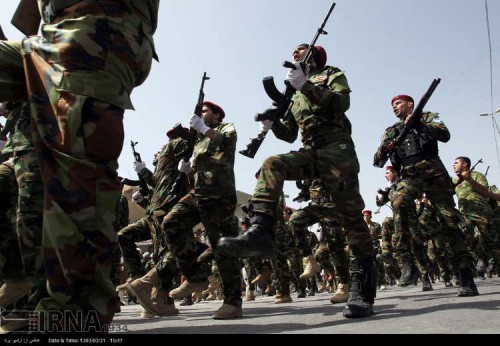
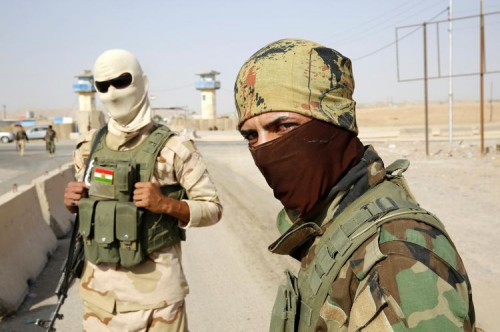
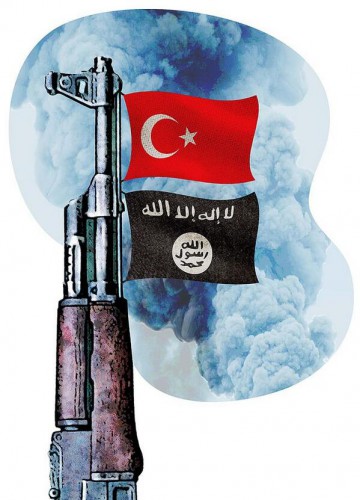 The Turkish Parliament
The Turkish Parliament 



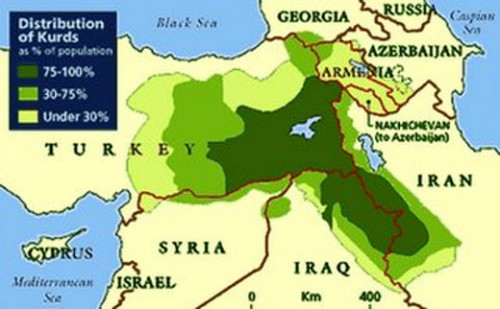




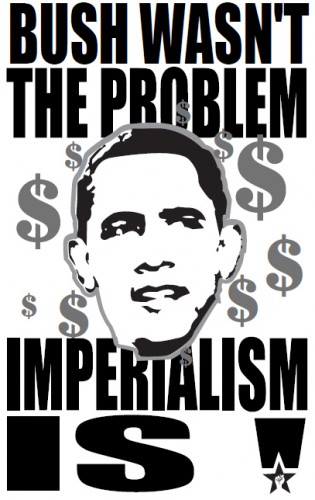
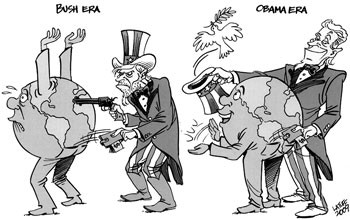 One problem with this is that there is no earthly reason to send troops abroad merely to ensure imports. Switzerland also imports oil. It does no such thing. Rather, it depends upon the self-interest of the oil exporters. Even apart from developing domestic oil, or importing it from a country such as Canada there is no case whatsoever to meddle in the affairs of other nations just to ensure oil availability. How many free market economists does it take to change a light-bulb? None, they leave it to market forces. How many soldiers does it take to ensure imports? None. This, too, can safely be left to market forces.
One problem with this is that there is no earthly reason to send troops abroad merely to ensure imports. Switzerland also imports oil. It does no such thing. Rather, it depends upon the self-interest of the oil exporters. Even apart from developing domestic oil, or importing it from a country such as Canada there is no case whatsoever to meddle in the affairs of other nations just to ensure oil availability. How many free market economists does it take to change a light-bulb? None, they leave it to market forces. How many soldiers does it take to ensure imports? None. This, too, can safely be left to market forces.
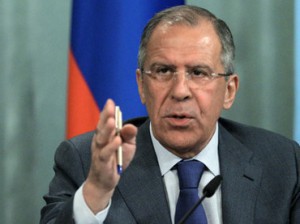 In a courageous and brilliant speech to the United Nations General Assembly on September 27, 2014, Russian Foreign Minister Sergei Lavrov pierced the veil of obfuscation that characterizes too many speeches at the United Nations, and delivered a scathing denunciation of Western imperialism, imperialism that can only be accurately described as global theft. Lavrov, on behalf of the Russian Federation implicitly warned that US/NATO is risking global war in embarking on its campaign to seize and dominate huge territories, while inexorably and ruthlessly determined to conquer and subjugate Russia, having learned nothing from the historic reality that Napolean’s effort to dominate Russia led to the collapse of Napoleonic France, and Hitler’s attempt to subjugate Russia led to the obliteration of his Third Reich.
In a courageous and brilliant speech to the United Nations General Assembly on September 27, 2014, Russian Foreign Minister Sergei Lavrov pierced the veil of obfuscation that characterizes too many speeches at the United Nations, and delivered a scathing denunciation of Western imperialism, imperialism that can only be accurately described as global theft. Lavrov, on behalf of the Russian Federation implicitly warned that US/NATO is risking global war in embarking on its campaign to seize and dominate huge territories, while inexorably and ruthlessly determined to conquer and subjugate Russia, having learned nothing from the historic reality that Napolean’s effort to dominate Russia led to the collapse of Napoleonic France, and Hitler’s attempt to subjugate Russia led to the obliteration of his Third Reich. 
